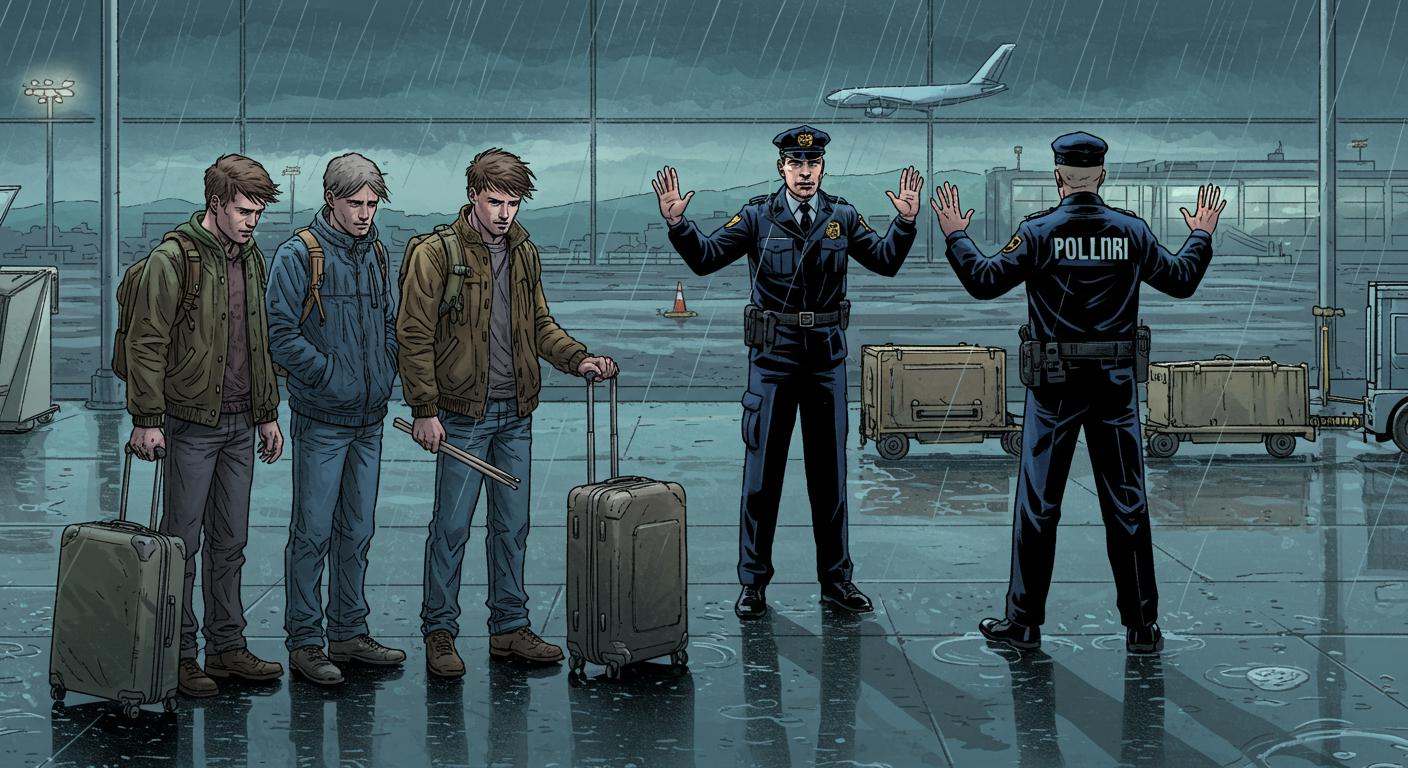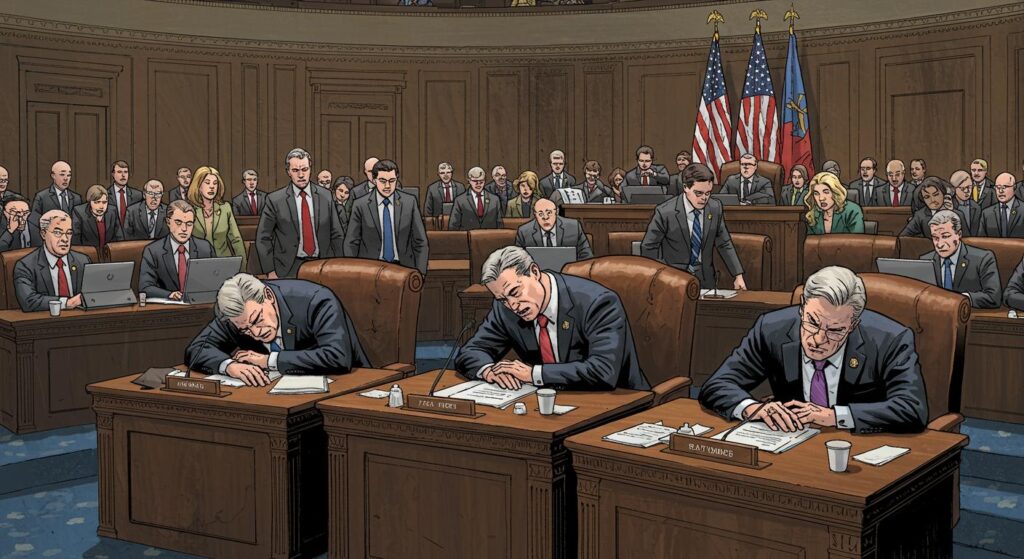The intersection of bureaucracy and music is rarely melodic, but the latest case involving Austin’s psych-sludge group Lord Buffalo strikes a particularly jarring note. For a band known for shadowy Americana and cinematic sonics, the real-life drama making headlines this week lands somewhere between Kafka and a late-night border checkpoint.
Trouble Before Takeoff
According to MetalSucks, Lord Buffalo’s scheduled European tour was torpedoed before it even began. Drummer Yamal Said—a lawful U.S. permanent resident of Mexican citizenship—was “forcibly removed” from the band’s flight at Dallas/Fort Worth International Airport. Rather than touch down in Copenhagen or Oslo, Said instead landed, in a manner of speaking, in the custody of U.S. Customs and Border Protection. The precise cause for this brush with border enforcement remains suspiciously murky—an ambiguity that probably feels more noir than adventurous to those involved.
The band’s statement, detailed further by the Dallas Observer, underscores just how little light is being shed on Said’s situation: there’s been no contact with him, despite a retained immigration lawyer, and the band is left with more questions than answers. Not exactly the highly-coordinated tour-launch energy most acts envision when rolling up to DFW.
Detained, Disconnected, De-Toured
The PRP picks up the narrative, highlighting the band and their supporters’ deep unease: “We are hopeful that this is a temporary setback,” the statement notes, “but we truly don’t know what’s going on.” Even Said’s family, according to a later update quoted by the outlet, has requested privacy as they navigate this tangle of red tape, pointing to the personal toll underlying the headlines.
The effects have rippled outward. Tour partners Orsak:Oslo are pressing ahead in Europe, now minus their American counterparts—one wonders what’s going through the minds of the audience members reading a last-minute cancellation notice pinned next to the merch table. Meanwhile, Sonic Arts (as recounted by the Dallas Observer) has called the situation heartbreaking, expressing hopes for a “swift and positive resolution” and extending their concerns to all those forced into bureaucratic hardship by immigration challenges. Perhaps not the traditional message from a record label posted to Facebook, but it feels fittingly somber for the context.
The Human, and Musical, Cost
As Lambgoat notes, Said’s residency in Austin stretches all the way back to the 1980s, when, referencing the Austin Chronicle, his parents migrated from Mexico to the United States. Here is not a passing visitor but a long-term member of the city’s music fabric, abruptly pulled from the tapestry with minimal explanation. It’s not difficult to imagine the disruption this causes—both on stage and off.
What’s striking in all the coverage is just how Kafkaesque the situation feels. There is a sense of almost willful opaqueness from authorities, with all parties—from bandmates to media—straining for basic facts and updates. The PRP also documents that, even with legal counsel in place, there are no clear answers—only uncertainty, legal limbo, and a patch of canceled tour dates once mapped optimistically across Europe.
Strange Times at the Gates
It’s tempting to treat this as an isolated case—a musician’s misfortune compounded by an overzealous gate agent or a paperwork oversight. But it sits within a chorus of stories about the modern border as a site of unpredictable, often surreal intervention. Is Lord Buffalo’s predicament a particularly visible symptom of a wider malaise? The casual, almost routine, upending of routine travel plans by opaque authority isn’t exactly new, but it never quite loses its sting when played out in real time.
There’s also a lurking irony: the very musicians often touted as “America’s cultural ambassadors”—trundling their vans full of gear and hope across borders—can find themselves abruptly recast as suspects, liabilities, or paperwork glitches. Where does that leave our much-loved notion of music as a universal language?
The Tour That Wasn’t
So here the story rests, at least for now: Orsak:Oslo carries on through Europe with a vacancy at the drum kit, Lord Buffalo’s fans are left holding unused tickets and even more questions, and Yamal Said sits somewhere behind the bureaucratic veil, fate unclear. To call it a cautionary tale feels almost too on the nose. Instead, it reads like another entry in the ever-expanding ledger of 21st-century weirdness—one where crossing borders, no matter how well-documented you think you are, can still make for a very strange trip.
Is this a one-off, or just one more example of how borders and bureaucracy can snatch the beat right out from under us? For now, the answer, much like Said’s whereabouts, is nowhere to be found in the footnotes.







